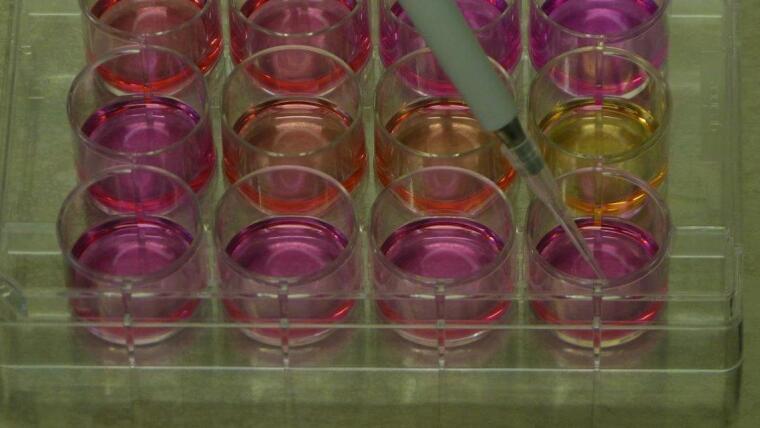
|
Module description |
|
|
Module coordinator |
apl. Prof. Dr. Regine Heller |
|
Requirements for module admission |
Enrolment in one basic module |
|
Module is required for |
Specialization module |
|
Type of module |
Required elective module, advanced module |
|
Frequency of offer (module cycle) |
Yearly (WS) |
|
Duration of module |
1 Semester |
|
Composition of module / types of components (lecture, exercise, seminar, practical training, excursion) |
Seminar: 2 hours per week per semester Practical training: 5 hours per week per semester |
|
Credit points (ECTS credits) |
10 cp |
|
Work load in hours:
|
105 h 195 h |
|
Contents |
This module provides knowledge about the interaction of pharmacological agents with cellular and molecular targets. It introduces molecular techniques as well as principles of target-based rational drug design and focuses on drug development for the treatment of neurological, inflammatory, cardiovascular and oncological diseases. The focus lies on the description of cellular drug effects and their consequences for the function of organs and the whole organism.In seminars, students will present topical scientific publications (each student 2 presentations). In practical courses active principles of pharmacological agents will be demonstrated using cell lines and primary cell models. |
|
Learning and qualification objectives |
Students get an overview about molecular mechanisms of pharmacological agents and gain a deeper understanding of the complex interactions between drugs and drug targets. They will learn to critically read and discuss the related scientific literature. In practical courses, they become familiar with pharmacological research topics and approaches, and learn to apply modern laboratory techniques. |
|
Requirements for admission to module exam |
Note |
|
Requirements for the award of credit points; exams (weighting of grades in %) |
Seminar presentation (100%) Proof of successful participation in practical course |